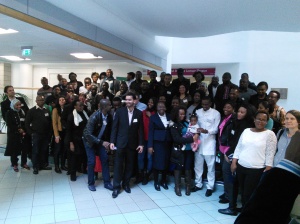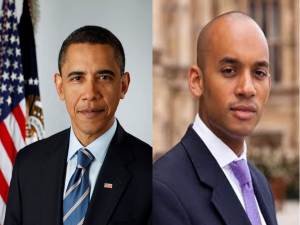We are able to name the enemy we face as evidence can lead us to master minders of this and that terrorist attack however much the perpetrators would want to cover their tracks. The enemy’s ability to blend with innocent crowds makes the task of targeting them even harder and with that comes the challenge of gathering the intelligence that would unmistakeably point us to the right direction. But that is just a decent man and woman’s attempt to hunt down yesterday’s menace, hold him/her accountable and hopefully prevent similar actions in the future.
Focussed on the above mission, it is likely that the world would take its eyes off tomorrow’s menace. Following Paris attacks that left 129 people dead, most if not all nations were quick to send messages of condolences to the French president François Hollande and all French citizens. One even read ‘…my country will do everything it can to help in the fight against terrorism’. Supposing that message came from the North Korean leader, you would be excused to smile when noticing the irony in such a message given the state of fear to which his people are subjected.
This brings us to consider some African countries where all the French values of ‘liberté, égalité et fraternité’ are being trampled upon as countries’ constitutions are being torn to pieces to serve the interests of a few, those who dare express themselves are being locked up, free and fair elections are being deliberately jeopardised contributing to recurrent cycles of violence, poverty, miscarriages of justice, corruption, and cronyism. Dressed up in glittering suits while walking down the red carpet and rubbing shoulders with the rich and powerful, some of these apparent allies (African leaders) against yesterday’s threat are in fact tomorrow’s menace to everything a free, democratic and wealthy society that we all aspire.
It therefore needs to be said that when the Cameroonians, Burundians, Congolese (DRC), Congolese (Brazzaville), to name just those few, changed their Facebook profiles in solidarity with France and the victims of the recent terrorist attacks, it was also a call for France (and the rest of the world) to stand shoulder to shoulder with them in upholding the values of liberty, equality and fraternity in their countries. That is if you believe, as is the case here, that oppressive regimes are as bad as Boko Haram, Al Shahab and all the other terrorist cells; and that corrupt governments are directly responsible for further national/regional instabilities, mass migration and a simmering hatred towards anyone rightly or wrongly thought to be responsible for personal misfortune!
“Thanks for the condolences but this is your last term of office”
“ thanks for the message but here are the sanctions we are putting in place for lack of press freedom in your country”
“we appreciate your condolences but your assets will be seized until you prove to us how you earned them” are the sort of responses that Africans expect and not a complicit silence or vague tough talking without actions or even blatant endorsement!



![_87139775_hi030516975[1]](https://swipel.files.wordpress.com/2015/12/87139775_hi0305169751.jpg?w=150&h=100)
![_87095102_floodskin3[1]](https://swipel.files.wordpress.com/2015/12/87095102_floodskin31.jpg?w=150&h=84)
![AP_pope_francis_africa_1_jt_151125_16x9_992[1]](https://swipel.files.wordpress.com/2015/11/ap_pope_francis_africa_1_jt_151125_16x9_9921.jpg?w=150&h=84)
![mobutu-pope[1]](https://swipel.files.wordpress.com/2015/11/mobutu-pope1.jpg?w=150&h=84)
![papafortajdhdfhgd-465x3901[1]](https://swipel.files.wordpress.com/2015/11/papafortajdhdfhgd-465x39011.jpg?w=150&h=94)
![CUoSUZXWEAAVqVS[1]](https://swipel.files.wordpress.com/2015/11/cuosuzxweaavqvs1.jpg?w=90&h=90&crop=1)
![bat-removal-and-control-hanging-near-home[1]](https://swipel.files.wordpress.com/2015/11/bat-removal-and-control-hanging-near-home1.jpg?w=150&h=100)